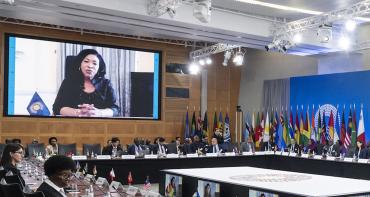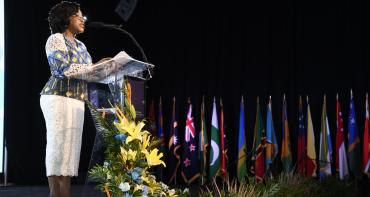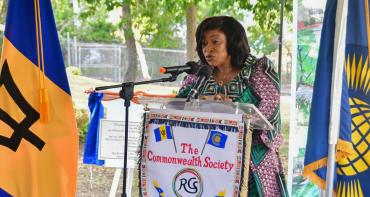At this time of global crisis resulting from the coronavirus pandemic, our Commonwealth focus turns – as it always does – to the most vulnerable and least resilient.

At this time of global crisis resulting from the coronavirus pandemic, our Commonwealth focus turns – as it always does – to the most vulnerable and least resilient. This means redoubling our collective efforts in support of member countries that are most in need. It must also elevate our concern and our action to support older people, who are most at risk from COVID-19, and who are also particularly susceptible during this time of increased economic strain and social isolation.
In many of our member countries, changing living and working patterns deprive ageing people of the networks of support from family and close community which have sustained and supported them in the past. This increases vulnerability and adds to loneliness. These factors add to anxiety at a time when healthcare systems and other provision to which they might turn for assistance are already overloaded. We must therefore act to fill gaps and to mobilise mechanisms for ensuring that the needs of all older people are met.
The majority of older people globally live in lower and middle income countries, which is how many of our Commonwealth member countries are categorised. Indeed, research by the Commonwealth Association for the
Ageing – CommonAge – and the Oxford Institute of Population Aging indicates that in the majority of Commonwealth countries the absolute size of the older population will increase by at least 100% over the next 25 years – a far greater rise than is generally the case globally. To be true to our inclusive approach and ethos, the Commonwealth has a special responsibility to show the way and to take a lead in upholding the importance attending to the needs and concerns of older people, particularly where they live in countries or communities which lack human, financial and technical resources – and especially at a time such as this of unprecedented global crisis.
Our Commonwealth cooperation over recent years has included special focus on resources for universal health coverage and on tackling non-communicable as well as communicable diseases. These priorities relate directly to the needs of aged people, who are disproportionately affected by the factors which combine to affect very directly to the ability of member countries to address vulnerability and which impair or improve the wellbeing of older people.
As in some countries of the Commonwealth we prepare to mark Mothering Sunday, and Mother’s Day in others in weeks to come, and then Father’s Day, it is particularly important for us to focus on the need for intergenerational connection and mutual support. Our Commonwealth understanding is that all can give and all can gain. This is true of countries and communities; it is also true of people of whatever age or background. So we must be alert and respond to the needs of each person, and confront attitudes or approaches which tend to discriminate on grounds of age, wherever and whenever they occur.
Remarkable contributions are being made by elders towards protecting our planet and safeguarding the welfare of our communities. I recall the work being done in New Zealand by Jane Mihingarangi Ruka from the Waitaha Executive Grandmothers Council through the Waiora Living Waters project. Jane has been appointed a New Zealand Peace Ambassador, and I met her last year to find out more about the ways in which she and those with whom she works in Auckland are using traditional regenerative methods to protect their local environment and water resources. Common Earth, our Commonwealth Secretariat implementation partner on adopting regenerative approaches to tackle the impacts of climate change, is working to scale up these and similar efforts to restore balance with nature and with one another through a shared experience of relatedness. We can all be inspired to adopt similar approaches and to work together across generations for the common good.
So let us all commit - as part of our Commonwealth identity - to making sure that, alongside the current needs for social distancing, and for caution in making physical contact, we keep at the forefront of our consciousness and concern ways in which we can serve and respond to the continuing needs of the very young, of youth, of middle aged and older people, of our mothers, our fathers, our grandparents, aunts and uncles, and – perhaps most of all – those with no close family at all to care for them. We will do this best through personal commitment, and by ensuring that in our countries and communities, and collectively in the Commonwealth, we make it a priority to implement comprehensive, well managed and properly resourced healthcare provision, with equitable and inclusive access to care and closer attention to social inclusion.



